| If you can't view the email, please click here. |
|
|
|
Summer 2018 Vol. 17 No. 2
|
|
From the Desk of the Editor
Süreya Martha Köprülü
“TPQ’s Summer 2018 issue marks the 11th annual edition that we are publishing with the support of NATO’s Public Diplomacy Division. This long-standing partnership has helped TPQ in its efforts to feature nuanced and diverse opinions on the security policy challenges facing Turkey, the region, and the transatlantic community. Over the years, we have had the privilege of bringing the perspectives of the previous three NATO Secretary Generals, as well as the current Secretary General Jens Stoltenberg, to our readers. As a collection, these contributions reflect the Alliance’s evolution and its capacity to reinvent itself in the face of new challenges.”
“Today’s security landscape is highly fractured: The US has ceded its role as the guarantor of Europe’s security under the Trump administration, and the rise of authoritarian tendencies across Europe is undermining the core values upon which NATO and other multilateral institutions were founded upon. As such, the tension between the Alliance’s normative and geostrategic responsibilities has never been more acute. Chief among the fallouts of this dilemma is that cooperative security remains elusive when it is needed most. Headlining the Summer 2018 issue are contributions by H.S.H. Prince Albert II of Monaco and the Deputy Secretary General of NATO Rose Gottemoeller, who address this theme from different perspectives.”
“With this Summer issue, we are honored to welcome a new advisory board member, Peter Van Praagh. As the founding President of the Halifax International Security Forum—the leading conference of high-profile democratic leaders committed to global security and prosperity—Peter brings his wealth of knowledge and experience to TPQ. Peter has been a supporter of the journal from its inception in 2002, and we are delighted to have him on our board.”
|
|
|
 |
The Ocean: A New Idea for Our World
Prince Albert II
“I am deeply convinced that our response to the variety of maritime issues regarding our oceans must be made on a global level. Covering vast geographic distances, the oceans of our planet are indeed one sole entity, within which all elements are interdependent. In this respect, the ocean offers perhaps the most obvious incarnation of this collective responsibility which we must assume, and which we have so much difficulty accepting at a time when multilateralism is readily mocked.”
“It must be noted that our efforts to explore and understand the oceans are far from sufficient. It is estimated today that barely 10 percent of marine fauna are listed. Although we know the surface of the seas relatively well, we ignore the majority of the intermediate zones, which are full of life forms that are essential to the equilibrium of our planet.”
“The outcome of humanity’s interest in the sea should not be the acceleration of its degradation. The sea today is in many ways a zone that is free of laws—used and abused by anyone who pleases. If nothing is done to change that, our ocean and our planet will be in danger. This reality puts the onus on multilateral forums, in particular the United Nations, to finally address these issues.”
|
|
|
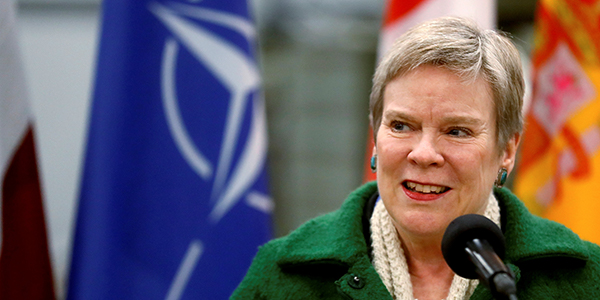 |
NATO Delivers: Toward a Faster, Stronger Alliance
Rose Gottemoeller
“As NATO faces the most complex and challenging security environment since the end of the Cold War, our Alliance continues to adapt. After Russia’s illegal annexation of Crimea in 2014 and the rise of ISIL/Daesh that same year, NATO responded quickly and with determination to implement the most significant increase in our collective defense in a generation. Our response takes a 360-degree approach. We are strengthening our presence in the eastern part of our Alliance from the Baltic to the Black Sea and enhancing our efforts in the fight against terrorism.”
"In this region, NATO recognizes that Turkey faces a number of difficult security challenges. The country has suffered more than any other Ally from brutal terrorist attacks, and NATO stands in strong solidarity with Turkey in the counter-terrorism fight. As a valued Ally, Turkey has played a leading role in shaping and supporting NATO's ongoing efforts in the generational fight against terrorism."
“Whether interfering with elections, engendering doubt and confusion about current or historical events, fostering fear or hatred or even violence, the challenge posed by the misuse of information technology is very real. Disinformation campaigns are part and parcel of new forms of hybrid actions that can also include a combination of espionage, military pressure and intimidation, and cyber-attacks on critical infrastructure. Again, there is nothing new about these techniques but they have been super-charged by technological development.”
|
|
|
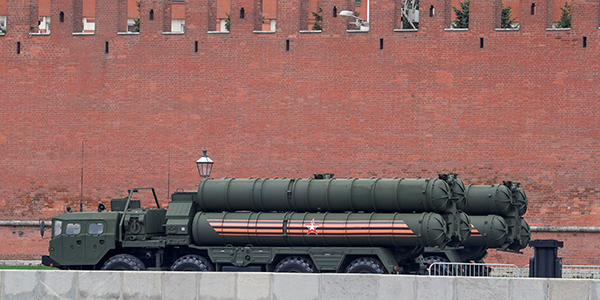 |
Turkey’s Relations with NATO & Russia: A Foreign Policy Impasse?
Ünal Çeviköz
“Both the US and Turkey suffer from the adverse effects of domineering, authoritarian, and seemingly uncompromising leaders, which impedes any chance of establishing a sensible and honest dialogue between the two parties. As far as Turkey is concerned, statements given to the press—mostly for domestic consumption—are also thought to be an appropriate way of sending signals to the international community. Under the circumstances, diplomacy is employed only for damage control in Turkey’s bilateral relations.”
"Far-reaching scenarios based on such perceptions suggest that Turkey is drifting apart from NATO and is looking for a new kind of security relationship with Russia and Iran. Such hasty conclusions have to take into consideration that Turkey's national defense strategy still relies fundamentally on its membership to NATO and the country's ultimate goal is to enhance its integration with the European Union."
|
|
|
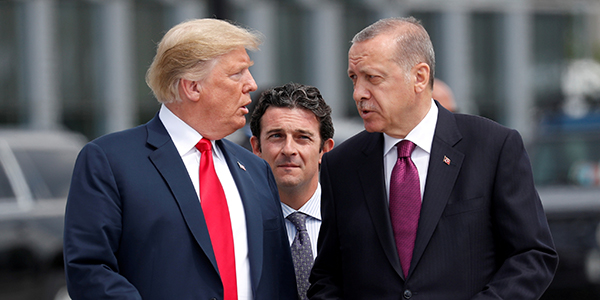 |
Turkey: The NATO Alliance’s Wild Card
Francesco M. Bongiovanni
"Alarm bells recently sounded in Washington following the announcement that Turkey would be buying Russia's S-400 air defense system. This move is incompatible with Turkey's acquisition of American state-of-the-art F-35 stealth fighters since the operation of S-400s would likely result in Russia learning how to defend itself against this aircraft. This move has also been seen as a potential point of no-return by NATO, one that would make it technically difficult to keep Turkey as a full partner in the Alliance."
“The notion that Turkey’s so-called ‘neo-Ottoman’ policies in this cauldron of a neighborhood could result in the revival, albeit a geographically limited one, of the Ottoman Empire is a fantasy. But the notion that Erdoğan’s Turkey will strive to extend its influence in the region and take advantage of opportunities and shifting Alliances whenever and wherever it can—if only to show the West that it has options and cannot be bossed around—is a reality.”
|
|
|
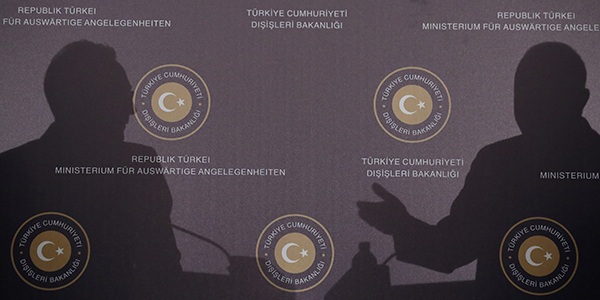 |
The Unique Nature of Modernizing the Customs Union
Nilgün Arısan Eralp
“The EU remains Turkey’s most important economic partner in terms of trade, foreign investment, and tourism. The fragility of the economic situation in Turkey—namely a declining growth rate, a large and structural current account deficit, heavy reliance on short-term capital inflows, declining foreign direct investment, and a private sector with large foreign currency liabilities—makes the EU indispensable for Turkey.”
“Currently, the motives behind modernizing the Customs Union go well beyond economic and commercial interests. Whereas cooperation in areas like energy, migration, and security (counter-terrorism) are purely transactional in nature, the initiative to upgrade the Customs Union embodies the spirit of a rules-based framework with a potentially transformative impact for Turkey as well as for Turkey-EU relations more broadly.”
|
|
|
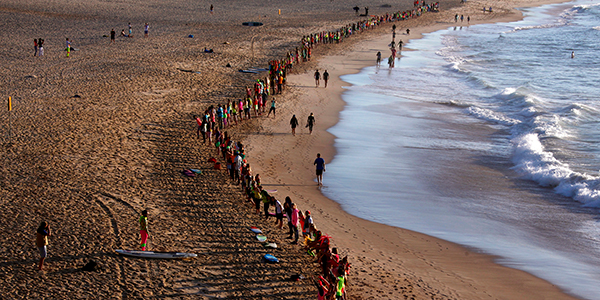 |
The Art of Making Critical Decisions
Agah Uğur
“As far as I have observed, we are faced with two different paths with almost any decision we make: To choose the right thing or the suitable thing. Choosing the suitable thing is self-explanatory: Choosing something that is less risky, straightforward, and explained away easily. The suitable path is a result of short-term thinking that is geared towards what will gain acceptance. When I look at today’s world, with populist and anti-globalization forces gaining ground across the globe, it becomes clear that choosing the suitable option has become the favored choice.”
“Always link your decisions to a reference point, by which I mean your values, ethics, and point of view. For example, a person who has led an honest life would much less likely to resort to dishonest decisions. Your references concerning decisions about a particular business you are dealing with could be derived from your knowledge, past experiences, and predictions regarding the future.”
|
|
|
 |
Oil Price Volatility: Causes, Consequences, and Remedies
Carmine Difiglio
“Turkish emergency oil reserves, by themselves, cannot have a material effect on world oil prices. Becoming less dependent on oil use would certainly help, but this is a long-term solution. In addition, even with less Turkish oil use, an important vector of economic harm to the Turkish economy would come from a decrease in Turkish motor vehicle and other exports. Therefore, Turkey finds itself dependent, like most other IEA member countries, on the effectiveness of the IEA stockholding system for protection after an oil emergency.”
“Strategic oil reserves can protect the worldwide economy if sufficiently large releases are promptly announced and executed. This would prevent the oil price spikes that would otherwise occur as a result of unplanned supply outages. Thus, governments should streamline procedures for a coordinated release of emergency stocks.”
|
|
|
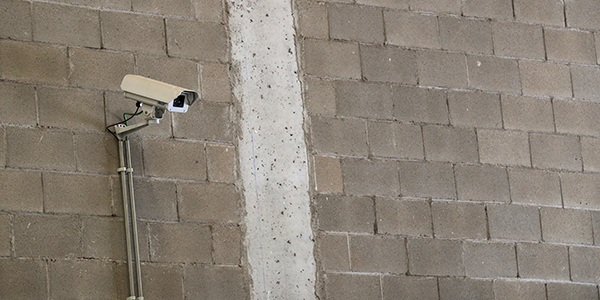 |
The Logic of Secrecy: Digital Surveillance in Turkey and Russia
Akın Ünver
“In democracies, states’ ability to maximize domestic secrets is checked by audience costs—a popular term in political science, which defines the set of popularity and legitimacy penalties states suffer from in cases of overreach, abuse, and corruption. It is only in democracies that for any one unit of secrecy cost, there is another counter-force from the society, which calls for the transparency of the type of information the state tries to extract from the public and keep secret.”
“Both Turkey and Russia are locked in a vicious cycle of relative insecurity, risky policy choices, and the resultant need for broadened surveillance powers. However, broadened surveillance powers in turn generate social instability, legal overreach problems, and mass reliance on circumvention and IP masking tools. Social insecurity intensified through draconian surveillance methods in turn render counter-terrorism and crime-fighting tasks more difficult, due to the state’s broadly securitizing moves. If Turkey seeks to demonstrate that it is more democratic than Russia, it needs to establish retrospective accountability and legal oversight mechanisms that Russia cannot and will not.”
|
|
|
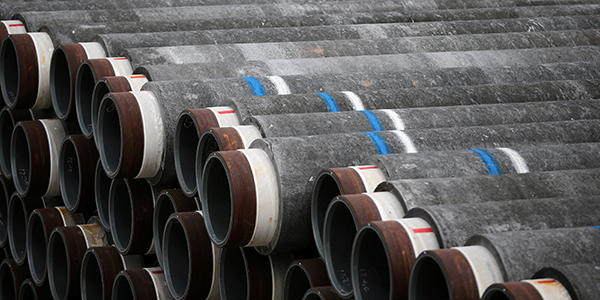 |
Powerful Ties: EU-Turkey Energy Relations
Suzanne Carlson
“Turkey has long worked to establish itself as an energy hub, and traditionally energy relations between the EU and Turkey have centered around pipeline projects. The two main projects underway—TurkStream and the Southern Gas Corridor (SGC)—have seen a rapid series of advancements in the second quarter of 2018. However, other recent developments regarding source countries, the EU’s relationship with Gazprom, and the increasing role of liquefied natural gas (LNG) has hindered progress.”
“The EU could support Turkey’s nuclear development under the umbrella of Euratom. The institution has formed cooperation agreements with third countries, including the US, Japan, Canada, Australia, Kazakhstan, Ukraine, Uzbekistan, and South Africa. Euratom’s expertise on safety regimes would benefit Turkey while also helping to prevent accidents that would affect its EU neighbors.”
|
|
|
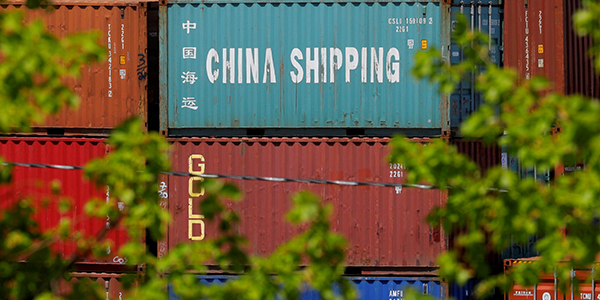 |
The Economic Thucydides Trap between China and the US
Jiong Gong
"The last likely reason underlying America's trade war with China is related to America's foreign policy change in general and not just with respect to China. America's foreign policy is returning to the old geopolitics game after a long time entangled with combating Islamic terrorism in the Middle East. Hence, came the national security review led by Defense Secretary Jim Mattis that lumps China together with Russia as revisionist states and strategic competitors."
“The possibility of escaping the economic Thucydides Trap exists, as does the hope of a peaceful and harmonious co-existence between corporate China and corporate America. The answer is very simple. The planet is a large enough place to accommodate two giants at the same time, as long as each side is recognizant and considerate of the other side’s needs and interests. There are several areas that both sides can work on in this aspect.”
|
|
|
BOOK REVIEW: Our Has Come By: How India is Making its Place in the World by Alyssa Ayres
Günay Kayarlar
“Ayres has a wealth of expertise and knowledge about India, and she portrays the past and current trajectory of India in an easy to read and well-crafted manner. One point of controversy about Our Time Has Come is her uncritical attitude towards economic reform and liberalization in India.”
“Ayres recommends that the US should be treating India as a ‘joint venture partner’ rather than an ‘ally-in-waiting.’ To serve both countries’ mutual interests and to facilitate India’s economic reforms, Ayres recommends bringing India into economic organizations and developing stronger bilateral trade ties.”
|
|
|
Interested in contributing an op-ed to TPQ's blog?
For guidelines click here. |
|
|
The Premium Corporate Sponsor of this Issue
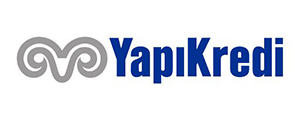 |
|
|
Thanks to Our Media Partner |
 |
|
|
 |
Phone: +90 212 621 4442 - +90 212 621 9258 Fax: +90 212 531 8718 info@turkishpolicy.com
Click to unsubscribe |
|
|




















